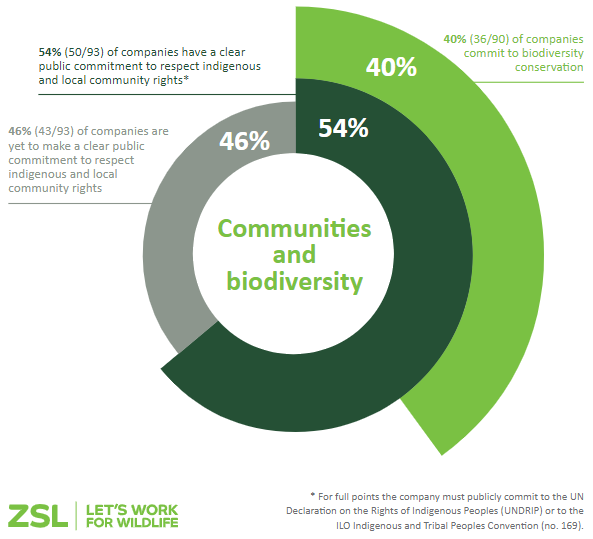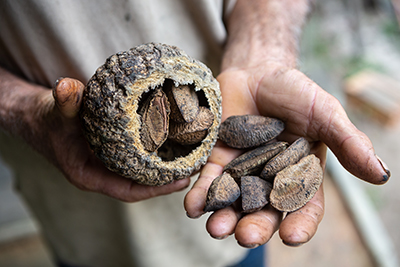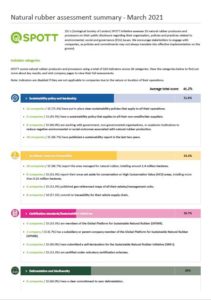ZSL (Zoological Society of London) is calling on the world’s leading timber and pulp companies to overhaul their commitments to local and indigenous communities and biodiversity conservation, as they release their annual assessment of 100 of the world’s major timber and pulp producers.
The assessment led by ZSL highlights that the world’s major timber and pulp companies are failing to be transparent about their commitments to and relationships with indigenous and local communities, despite these communities’ important role in safeguarding our planet’s natural resources.
The analysis of 100 producers of timber and pulp published by ZSL’s SPOTT team has found that only 54% (50/93) of companies make a public commitment to respect indigenous and local community rights, and even less, 40% (36/90), commit to biodiversity conservation.

According to the United Nation’s Food and Agriculture Organization, wood-based panel trade has skyrocketed 800 percent in the past three decades. The world’s natural forests cannot sustainably meet the soaring global demand for timber and pulp products under current forest management practices. Unsustainable timber and pulp operations contribute to deforestation, biodiversity loss and land conflicts. By working responsibly and with indigenous and local communities however, timber and pulp companies have the potential to bring benefits to forests, local economies, and people, particularly in rural areas.
SPOTT’s 2021 assessment further reveals that just 16% (15/93) of the leading companies publicly commit to obtaining free, prior and informed consent (FPIC) from indigenous and local community stakeholders, while only 24% (22/93) publicly commit to conducting social and environmental impact assessments (SEIAs). Both FPIC and SEIAs are essential for companies to improve their ability to predict, assess and mitigate potential negative impacts on forests and communities.
Sam Ginger, the ZSL analyst who led the report, said: “The world’s 370-500 million indigenous people play a critical role in conserving biodiversity and mitigating climate change. At least a quarter of the world’s land area is owned, managed, used or occupied by indigenous peoples, encompassing up to 80 per cent of the planet’s biodiversity.
“Cultivating a healthy and positive relationship between companies and communities is a fundamental component of sustainable forest management. FPIC is the first step; however, continual stakeholder engagement is required to ensure that communities’ legal and customary land rights are upheld.”
SPOTT-assessed timber and pulp companies are also failing in transparency related to employment partnerships with communities. Only 24% (22/93) of companies report commitments to provide business/work opportunities for local communities. Just 17% (13/76) of companies publicly commit to enabling sustainable use of non-timber forest products (NTFPs) by local communities.

Brazil nuts, an NTFP, can provide some Amazon rainforest-based communities with sustainable livelihoods.
Ginger added: “Enabling sustainable harvest of NTFPs, such as food and medicines, can help ensure communities’ needs are met. A successful company-community partnership is one where communities have significant bargaining power, their concerns are treated as legitimate, and effective governance frameworks are established to hold the company to account, none of which is achievable without the implementation of FPIC and SEIAs.”
In conclusion, Ginger said: “Where not already the case, companies should make their commitments to biodiversity conservation, indigenous populations, and local communities clear and report, frequently and in detail, how policies are applied in the field.”
Niels Fibæk-Jensen, CEO of Matter, a financial service company that aims to make it easier for investors to understand and report the sustainability impact of investments. said: “The timber and paper sector, while a critical part of our global economy, has significant impacts on the climate, our natural resources and ecosystems, and local communities. We need to get as many investors as possible to understand best-practice expectations for companies in this sector, as well as how companies are disclosing against these expectations, so that these insights can be turned into action. SPOTT’s analysis is a timely and important resource in this regard.”
ZSL is strongly urging timber and pulp supply chain actors to publicly disclose all of their sustainability policies so buyers, financial institutions, and other stakeholders can assess the quality of corporate commitments and that they further ensure that their commitments and practices cascade from supply chains to suppliers, ensuring the same minimum requirements are applied across the supply base.

Sangha River, Congo Basin

